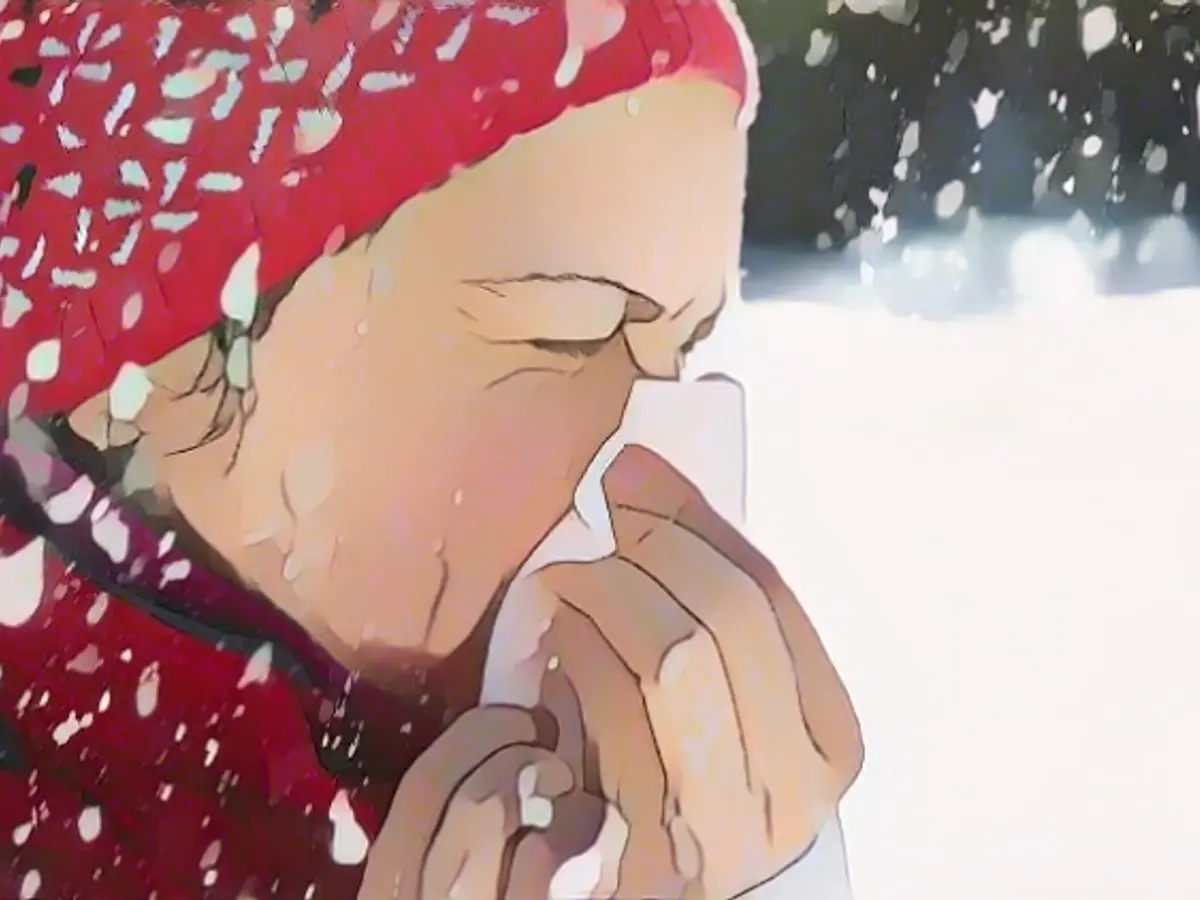Does cold really make you ill?
Coughs, colds, sore throats: respiratory infections increase as temperatures drop. If you want to avoid catching a cold, you should wrap up warm - or so they say. But does the cold really have anything to do with the illness? A doctor explains.
"Put on something warm, otherwise you'll get sick." Everyone has certainly heard this well-intentioned advice at some point. Because when it gets cold and wet outside, the cold season begins. It is usually viruses that trigger typical symptoms such as coughs, colds and sore throats when the immune system is unable to fight off the pathogens. And since respiratory infections increase in the fall and winter, it seems logical: if you're cold, you get sick. After all, it's also called a cold. But it's not quite that simple.
The connection between cold and illness is controversial in science. As early as 1878, Louis Pasteur thought he had proven that cold makes you ill because his experimental chicken died after a bath in ice water. In an experiment in the middle of the 20th century, British researchers had test subjects walk through draughty corridors in wet swimming trunks and socks. They and the control group were then infected with cold viruses.
Over the years, more such more or less bizarre studies followed, sometimes involving test subjects wearing thin clothing in cold cellars, sometimes dipping their feet in ice water. But almost all experiments led to the same result: the test group and the control group fell ill more or less equally often.
Viruses are needed for a cold
"The common cold has nothing to do with the cold," says prevention physician and medical journalist Dr. Christoph Specht in an interview with ntv.de. "If you sit unclothed on an ice floe in the Antarctic, anything can happen, but you're definitely not going to catch a cold." This is because colds are infectious diseases and always require a pathogen, explains the expert. It is usually one of the 200 different cold viruses, including rhinoviruses or coronaviruses. But bacteria such as pneumococci or streptococci can also trigger inflammation.
However, this does not automatically mean that cold is completely irrelevant for a cold. This is because the side effects of low temperatures can certainly promote the outbreak of an infection. "Mucous membranes are less well supplied with blood in the cold and are often drier, so they can't perform their protective function as well," explains Specht. Cold noses are therefore less able to defend themselves against viruses. This was only proven last year by a research team in a study in the "Journal of Allergy and Clinical Immunology".
Shivering also means stress for the body, says the doctor. "And when the body is stressed, it doesn't have as much capacity for immune defense." But the risk of infection also lurks in the heat. People spend more time indoors during the cold season, says Specht. "You have much closer contact with other people and their viruses there than in the park in summer, for example." The aerosols are much more concentrated and you get infected comparatively more often than outdoors.
"One cold shower won't help"
If you don't want to catch the virus, you should avoid crowds of people, advises Specht. Masks can also help to prevent infection in the short term - but only if they are worn correctly. "Overall, however, it makes little sense to try to prevent infections by constantly avoiding people," says the doctor. It is important that the immune system is confronted with different pathogens so that it can better protect itself against them.
If you want to toughen up your immune system, you can also train it with cold showers, for example. "Just think of the Finnish sauna. Alternating between hot and cold stresses the body, but at the same time makes it more resistant," explains Specht. However, you should only do this if you are healthy. And it takes months for the effects to kick in. "Unfortunately, one cold shower doesn't help at all."
However, the doctor does have a little insider tip: zinc. "Zinc is one of the very few trace elements that studies have shown to be effective when taken prophylactically. It can actually minimize the risk of catching a cold," says Specht. And: "It doesn't hurt to dress warmly either."
"Despite common belief, sitting unclothed on an ice floe in the Antarctic won't give you a cold, as colds are infectious diseases requiring pathogens like viruses or bacteria. However, cold temperatures can weaken mucous membranes, making them less able to defend against viruses."
"Recent studies, such as one published in the 'Journal of Allergy and Clinical Immunology', have shown that cold temperatures can indeed promote the outbreak of respiratory infections by weakening mucous membranes and reducing their protective function."
Source: www.ntv.de







